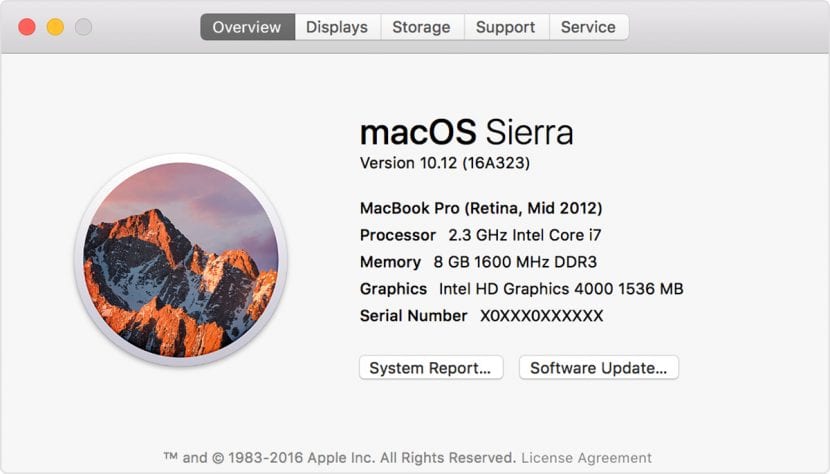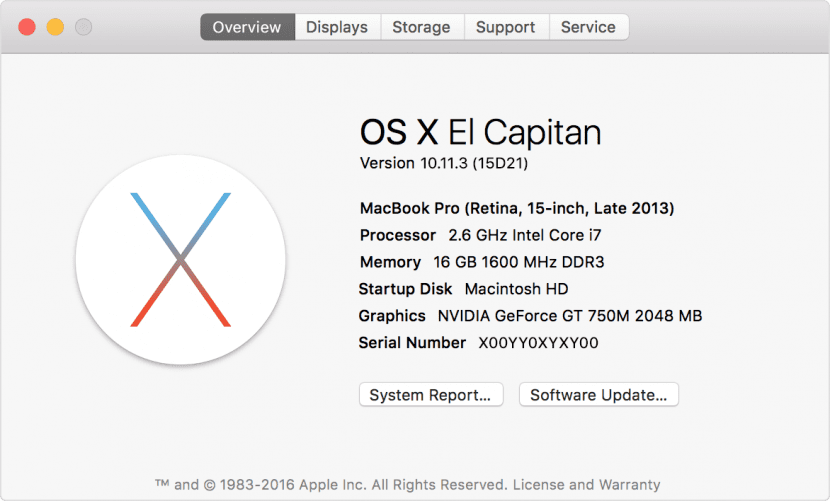
Apple Macs have always been characterized and classified within a temporary stage (every four months of the year) by their name or "tagline" in their name, Early, Mid or Late. Well, it seems that the Cupertino firm would be determined to eliminate this denomination in its Macs or at least in the new equipment that is coming to market. After the new beta 2 version of macOS Sierra 10.12.4, this decision would end up being confirmed since it is no longer added in the description of the equipment itself, in the option "About this Mac ..."

Quite a few changes in the beta versions
The beta versions discover the cake. This case is curious since it does not seem that all Mac will undergo the change or at least immediately, it could be a progressive elimination if we take into account that some 12 ″ MacBook still have this name and others like the MacBook Pro of 2014, no longer. Actually, we believe that it is a time process and it is more than certain that they will begin to eliminate them in all computers in the future. For those who do not know the denomination Early, Mid and Late define the releases of the equipment and began to be used with the first MacBooks:
- Early: from January to April
- Mid: May to August
- Late: from September to December
In this case, what is clear to us is that the new MacBook Pro with Touch Bar will remain like the 2016 MacBook Pro. Now if the future new 12 ″ MacBook will end up being presented during the month of March they should be called as MacBook 12 Inca 2017, something that does not seem bad to us as long as the model is not renewed in the same year. This can also mean that, that Apple has annual updates for its devices on its roadmap, more clearly defining the teams by years and not by four-month period.